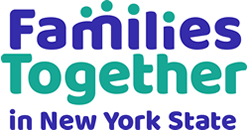FPA Code of Ethics
The work of Family Peer Advocates (FPAs) is rooted in the values of Family-Driven Care and the Principles of the Child and Adolescent Service System. The work of the Family Peer Advocate supports the belief that parents (i.e. biological, foster, adoptive, guardians, and others with primary caregiver duties) must have a
meaningful voice and a primary decision making role in the care of their own children as well as in designing and evaluating services and developing the policies and procedures governing care for all children in their community, state, tribe, territory and nation. The concepts of empowerment and resiliency are central to the work of Family Peer Advocates. As peers, Family Peer Advocates use their ‘lived experience’ and training to inspire hope and reduce stigma. Family Peer Advocates focus on strengths as well as needs, assist families to set priorities and goals, provide information, and help families navigate multiple complex service systems. Family Peer Advocates support families to strengthen their connections to community resources and connect with natural supports. Family Peer Advocates work in collaboration with clinicians and other service providers to enhance engagement and partnership in order to improve both the experience and outcomes for families.
This Code of Ethics is intended to serve as a guide to professional conduct of Family Peer Advocates. It offers general principles to guide conduct in situations that have ethical implications.
Code of Ethics Training for Family Peer Advocates
Family Peer Advocates (FPAs) provide invaluable support to families. One resource you have in guiding your work is the FPA Code of Ethics. These establish clear standards of conduct, facilitate ethical decision-making, and foster accountability among FPAs. This webinar explores and enhances your understanding of the FPA Code of Ethics. You will consider the ethical and professional principles of the FPA throughout the professional role. You will understand how to approach colleagues regarding ethical concerns and dilemmas. This includes situations where there may be an ethical violation and you may have to file a complaint. The process for investigation, review and appeal will be reviewed. By the end of this offering, FPAs will be equipped with the knowledge to uphold the Code of Ethics thereby fostering an environment of integrity and ethical conduct for themselves and the families they support.
Code of Ethics and Disciplinary Policies and Procedures
The Code of Ethics and Disciplinary Policies and Procedures are established to uphold the highest standards of professionalism among credentialed Family Peer Advocates, ensuring that their work is guided by the principles of family-driven care, empowerment, and cultural humility. It affirms that the primary responsibility of Family Peer Advocates is to foster the well-being of families through advocacy, hope, and non-judgmental support, rooted in lived experience. The Code of Ethics provides clear expectations around confidentiality, informed consent, professional boundaries, and conflict resolution, while emphasizing ongoing competence, integrity, and respectful collaboration across service systems. It further outlines a fair and transparent process for addressing ethical concerns—detailing investigation procedures, appeal rights, and sanctions—to both protect families and assist advocates in professional growth and accountability. Ultimately, these policies are designed to promote ethical conduct, safeguard families’ interests, and strengthen the trust and effectiveness of the Family Peer Advocate credential.
Persons wishing to file a complaint against a Provisionally or Professionally Credentialed Family Peer Advocate may do so by completing the Code of Ethics Violation Complaint Form, including supporting documentation (see page 5).

